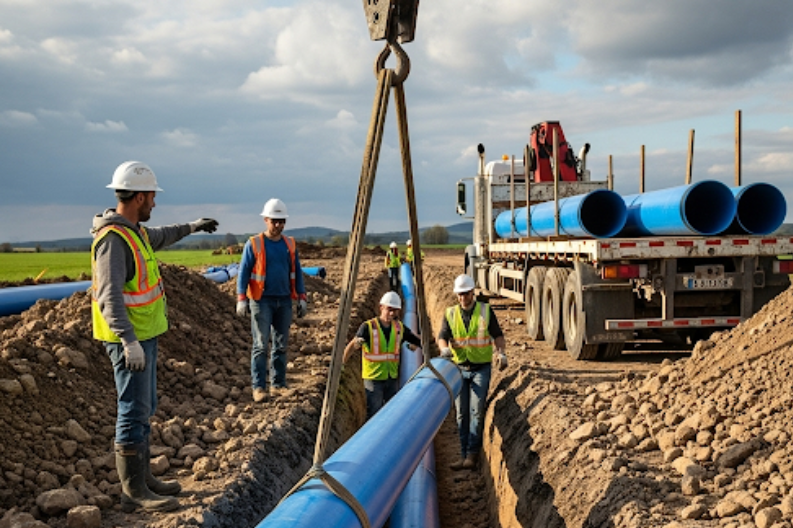The Delhi Jal Board (DJB) has started work on a new drinking water pipeline in Janakpuri after months of complaints about unsafe water. For years, the southwest Delhi neighborhood has faced serious contamination issues, and residents have reported unsafe drinking water for over five months. Meanwhile, the National Green Tribunal (NGT) continues to monitor the matter closely.
The Janakpuri A-1 block Residents’ Welfare Association first raised the issue in March, reporting widespread contamination. Soon after, the Central Pollution Control Board (CPCB) tested samples in June and July and found E. coli and total coliform bacteria in six of 20 samples. Clearly, these results showed that sewage was mixing with the drinking water supply, creating a serious health risk.
In response, the DJB carried out temporary repairs on July 22. However, the board also decided that the area needed a permanent solution. Therefore, on August 1, it issued a work order for a new 730-meter pipeline, and construction began on August 4. The project will take 60 days to complete, with a deadline in early October. Moreover, the NGT, led by Justice Prakash Shrivastava, ordered the DJB to provide an update one week before the next hearing on September 15.
The problem has disrupted daily life. As a result, many families now buy bottled water not only for drinking and cooking but also for washing clothes and bathing. Residents blame the old 40-year-old pipelines, which have corroded over time and caused contamination.
Previously, the NGT criticized the DJB for delaying its response, pointing out that the board made little progress after months of complaints. This time, however, the court has urged the DJB to act promptly and take meaningful steps.
Now, with the new pipeline under construction, the community feels cautiously optimistic. The RWA has pledged to support the DJB in completing the work, recognizing the urgent need for a lasting solution. Ultimately, for Janakpuri residents, safe drinking water remains a basic necessity that has been out of reach for too long.
- DJB is laying a 730-meter drinking water pipeline in Janakpuri.
- Work began on August 4 and will take 60 days to finish.
- CPCB found E. coli and coliform bacteria in six of 20 water samples.
- The 40-year-old pipelines have corroded and caused contamination.
- NGT criticized DJB earlier, but now oversees the project to ensure timely action.



